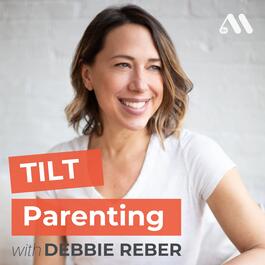
TPP 417: A Conversation with Dr. Gina Riley on Self-Determination Theory & Motivation
We’ve touched on the theory of self-determination on the show before, but today, I’m thrilled to dedicate an entire episode to this important topic. Joining me for this deeper dive is Dr. Gina Riley, an expert in self-determination theory and motivation. This conversation will resonate with so many of you because it beautifully ties into themes we often explore here, like low-demand parenting and fostering our kids’ natural passions and strengths. In this episode, Gina explains the theory of self-determination and dives into the science behind why it’s so impactful, particularly for neurodivergent kids. We explore how it connects with autonomy-supportive parenting and discuss the three tenets of cognitive evaluation theory, which examines what fosters intrinsic motivation. We also tackle the hot topic of whether extrinsic motivators like stickers and rewards have a place and how to genuinely connect with our kids' interests—even when they differ from our own. About Dr. Gina Riley Gina Riley, Ph.D., is an educational psychologist, Program Director, and Clinical Professor of Adolescent Special Education at CUNY – Hunter College. She has conducted significant research on homeschooling and unschooling, an educational method and philosophy that advocates student intrinsic motivation as a primary means for learning. In addition to her research on self-directed learning environments, Dr. Riley has expertise in Supported Decision Making, an alternative to guardianship for students with disabilities. She is a faculty advisor for Supported Decision Making New York, promoting autonomy and self-determination for individuals with disabilities. Dr.Riley also has extensive experience in online, hybrid, and HyFlex education, having been actively involved in the field since 1998. Her contributions to educational psychology and alternative education models have been influential in shaping contemporary discussions on personalized and flexible learning approaches. Dr. Riley is the author of numerous academic articles and three books, including Unschooling:Exploring Learning Beyond the Classroom (Palgrave, 2020), The Homeschooling Starter Guide (Simon & Schuster, 2021), and The Joys of Self Determined Learning: A Collection of Essays (Ricci Publishing, 2022). She is the current President-Elect of the New York State Association of Teacher Educators. Things you'll learn from this episode What self-determination theory is, and how it’s connected to intrinsic motivation Why a sense of competence, autonomy, and relatedness, as outlined in the cognitive evaluation theory, are crucial for motivation Why it matters that parents focus on facilitating autonomy and decision-making in their children What the science says about how and why intrinsic motivation leads to better academic and social outcomes in adulthood How intrinsic and extrinsic motivations can coexist and why it’s important that they’re balanced Resources mentioned Dr. Gina Riley’s website Gina on Instagram Gina on Twitter Unschooling: Exploring Learning Beyond the Classroom by Dr. Gina Riley The Homeschooling Starter Guide: How to Create and Adapt the Best Education Action Plan for Your Needs by Dr. Gina Riley NYS Decision Making Curriculum (free decision making curriculum for schools and homeschools I Will Die on This Hill: Autistic Adults, Autism Parents, and the Children Who Deserve a Better World by Meghan Ashburn and Jules Edwards Meghan Ashburn and Jules Edwards on Autistic Adults, Autism Parents, and the Children Who Deserve a Better World (Tilt Parenting podcast) Drive: The Surprising Truth About What Motivates Us by Dan Pink The intrinsic motivation of Richard Ryan and Edward Deci The Self-Driven Child, with William Stixrud and Ned Johnson (Tilt Parenting podcast) The Self-Driven Child: The Science and Sense of Giving Your Kids More Control Over Their Lives by Dr. William Stixrud and Ned Johnson Learn more about your ad choices. Visit megaphone.fm/adchoices
From "TILT Parenting: Strategies, Insights, and Connection for Parents Raising Neurodivergent Children"


Comments
Add comment Feedback